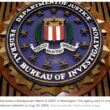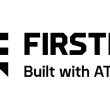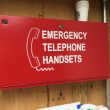Thales prepares for DHS pilot
LAS VEGAS — Thales Communications is displaying the latest version of its Liberty multiband radio — which will be used in an upcoming U.S. Department of Homeland Security (DHS) pilot project — that includes new features and power-charging options at this week’s Association of Public-Safety Communications Officials (APCO) conference.
Having received FCC type acceptance and having been included in GSA price lists, the Liberty is commercially available, but full production runs of the multiband handsets will not occur until next year, said Steve Nichols, Thales’ director of homeland security and public safety.
Prior to that, the Liberty radio will be used in a DHS pilot being conducted in 14 regions. Nichols said he hopes as many agencies as possible will participate, so they can try the Liberty radio, which communicates on all public-safety bands in the United States.
“[Multiband radio] is a new product concept, and many people — as they are in the land-mobile business — really aren’t going to be satisfied until they get one, program it for their system, turn it on and see how it does,” Nichols said.
At the APCO show, Thales will demonstrate the Liberty’s scan function, as well as offerings associated with powering the radio, Nichols said. Thales has developed a battery charger with an LED bar-graph display that lets users know “how much juice is in the tank” when charging, he said. In addition, the charger can be connected to an IP network to enable remote monitoring of battery management.
In response to a DHS request, Thales also is developing a clamshell pack that uses AA batteries — something that is important in situations where commercial power may not be available for recharging radio batteries, Nichols said.
“Many people said that, when Katrina occurred, there were many radios they couldn’t use because they couldn’t recharge them with [commercial] power out,” Nichols said. “We think it’s an important part of a multiband interoperability solution, because the chances are that this radio is going to find application at the kinds of disasters—such as hurricanes, flood or tornadoes, those kind of things — [where the commercial power grid may be out].”

















